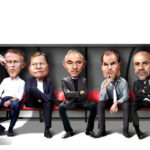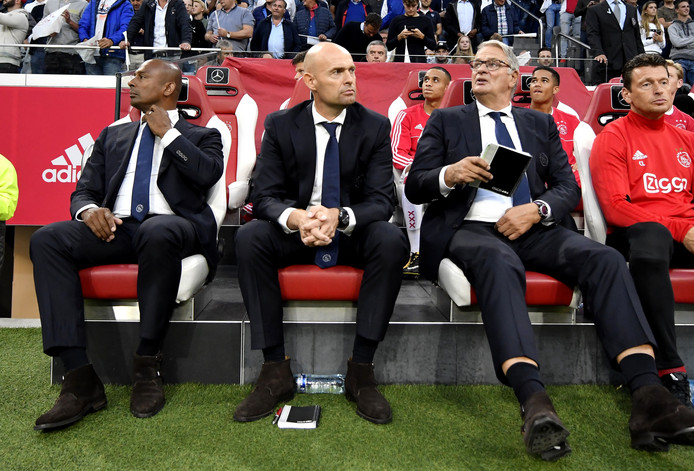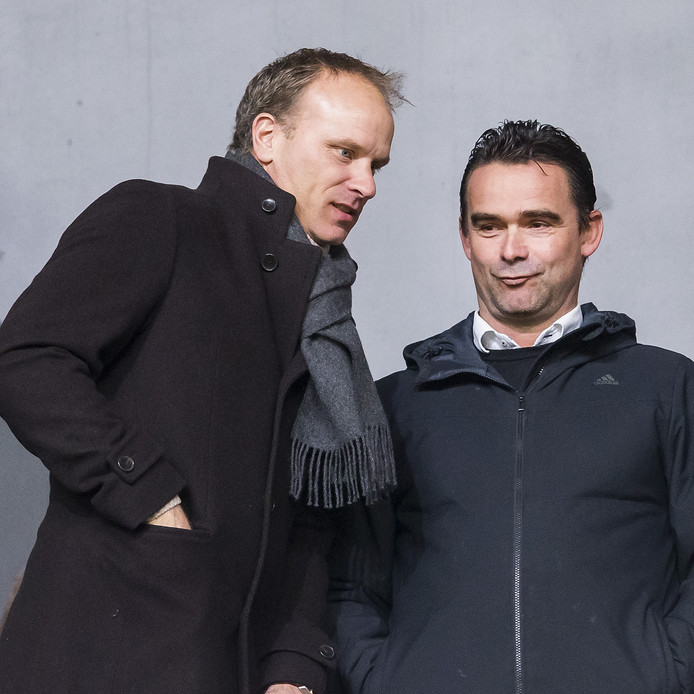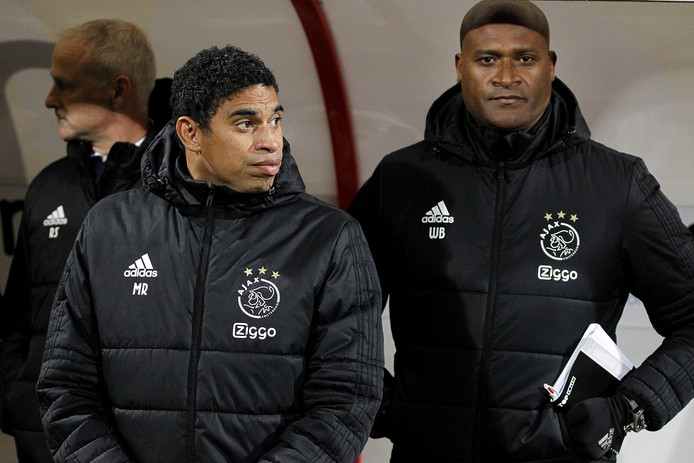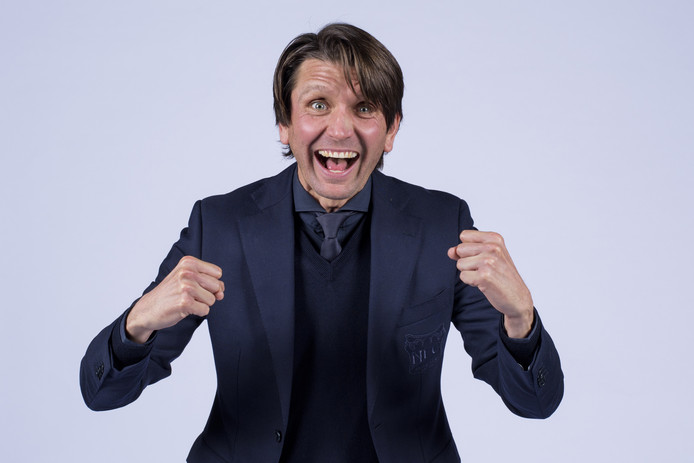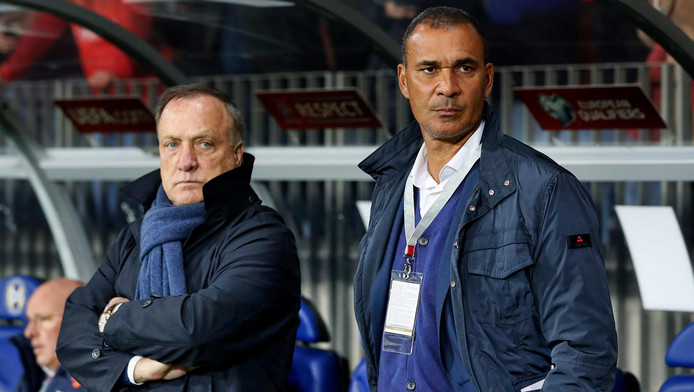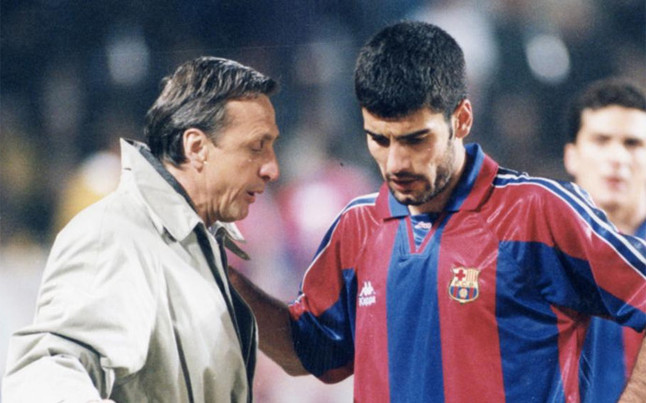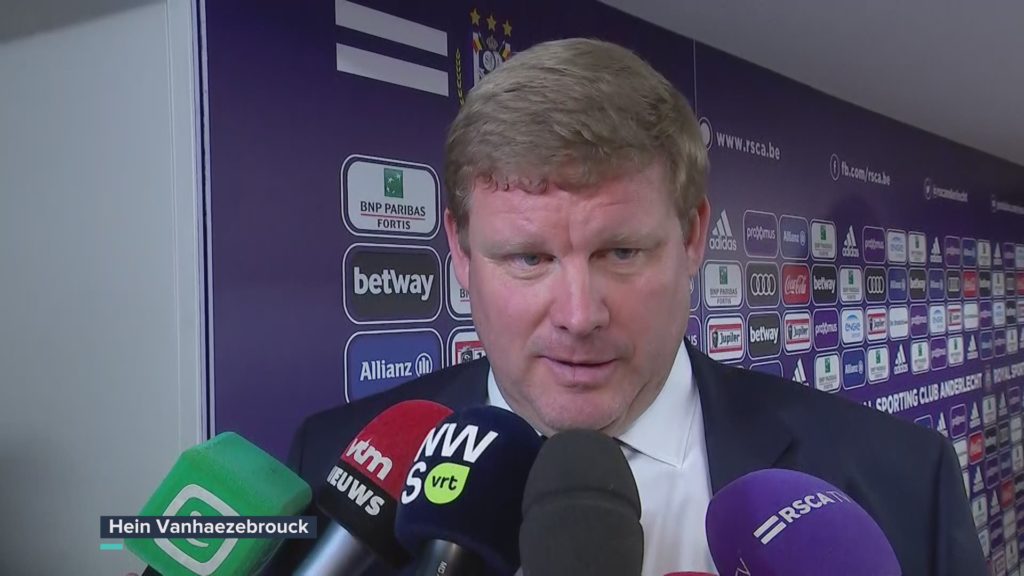Today, you can’t even “park” an article for a week or it has become almost obsolete. While prepping this post, Ajax unceremoniously dumped Mr Ajax Dennis Bergkamp, up and coming coach Marcel Keizer and old-hand Henny Spijkerman. The story of a hidden power struggle within Ajax.
When Cruyff’s velvet revolution was going full speed, the maestro preached that ex-players should run the club. According to his vision, Edwin van der Sar – graduate of the Cruyff Academy – was put in management. Marc Overmars came in to oversee technical affairs, and Dennis Bergkamp and Wim Jonk – once a unit on the pitch – were brought in to focus on player development and the through-put of talents towards the first team. Coach Frank de Boer, a passerby per definition, was also part of the so-called Technical Heart.
Since then, and since Cruyff’s passing to God’s perfect pitch, things have changed. The technical heart was reduced to an advisory role. Most decision making was hampered by this consensus model and since Jonk and Bergkamp in particular could never find consensus, Marc Overmars was promoted to Technical Director, and the Heart became a group of advisers. Coach De Boer left the Heart, as he was a mere passerby. When Jonk took his leave, the role of the new Youth Academy director was diminished.
Aron Winter, Marcel Keizer, Henny Spijkerman, Carlo L’Ami
When Peter Bosz wanted to structurally change things at Ajax – he wanted to have Bergkamp, Spijkerman and L’Ami replaced – Van de Sar decided against this. Exit Bosz. Bergkamp took the reigns and suggested a young, influenceable coach. His old mate Marcel Keizer was the choice. He was successful with Ajax 2. He would be the man to bring Van de Beek, De Jong, Nouri, Kluivert and De Ligt into Ajax 1. Overmars wasn’t sure. He wanted to interview a large group of candidates and was particularly keen to get Michael Laudrup. Bergkamp won.
However, with the dramatic European campaign, the shuffles made by Keizer, the lack of clarity and the inconsistent results, the board and Van de Sar/Overmars were getting more and more convinced they made a mistake. This young group needed someone with clarity. With vision and who could bring results.
Overmars and Bergkamp clashed more and more and the enigmatic former Gunner was not an easy counterpart in discussions. The board supported Sar/Overmars to relief Bergkamp from his – vague – duties. Marcel Keizer was to be replaced as well and Spijkerman – buddy buddy with Dennis – was told to pack up as well.
Dennis and Marc in better days
Now, Overmars had won.
A strange series of affairs, for the outside world. But internally, the tension had been there for a while. The loss in the National Cup vs Twente was the straw that broke the camel’s back.
All focus is now aimed at FC Utrecht coach Erik ten Hag. It was Marc Overmars who signed Ten Hag as Go Ahead Eagles coach. Ten Hag got Eagles to the top level and made a move to Guardiola’s Bayern Munich. When he returned to the Eredivisie, he impressed highly with struggling FC Utrecht. Alfred Schreuder, once the crown prince of the Dutch coaching club and currently assistent at Hoffenheim, is supposed to be his assistant at Ajax. The Sons of Gods will have to fork out close to $1mio to pay off Utrecht. Schreuder can be brought in at no additional cost.
Reiziger and Bogarde
An excellent article from AD Premium by Maarten Wijffels and Sjoerd Mossou.
Ronald Koeman was considered distant and arrogant at Everton. Bosz was considered naive and reckless in Dortmund. Frank de Boer was called rigid at Palace. In Hamburg, Van Marwijk was named lazy and oldfashioned. Even Louis van Gaal got the label boring in Manchester.
All exaggerated characterizations of course. But, it does paint a picture of the Dutch coach in 2017. Basically, they’re arrogant, rigid, lazy men who think in the same tactical dogmas as they did twenty years ago.
We do not have any Dutch football coach working in the big European leagues. Even Albert Stuivenberg, in Belgium, had to pack his bags recently.
The Dutch coach, once a renowned export product (Hiddink, Advocaat, Beenhakker, Stevens, Koeman, Van Gaal, Adriaanse) is out of fashion. Only Henk ten Cate produces results, while Van Marwijk recently helped Saudi Arabia to the World Cup.
Chris van Puyvelde, the technical director of Belgium’s football federation: “Whenever I came in China or the US in the past, they wanted to talk about our beer or our chocolate. Now, they say: if you have all this talent, you probably produce really good coaches too. Why would a foreign club want a Dutch coach today?”
Twenty years ago, it was different. The Dutch coaches were miles ahead, tactically. Progressive, good communicators and adventurous. Peter Hyballa, product of a Dutch mother and German father, and ex-coach of NEC Nijmegen: “Oh boy, when I was a kid in Germany, I’d watch Dutch football all the time. You were trailblazers, so much further than we were. The way your television discussed football, about roles, tactics, zonal marking, a whole new world opened up for me.”
Hyballa goes on: “But the thing is, what you did, other nations started to do that too. But better. Germany, Spain, France they copied your football vision and integrated it with their strengths. Its more intense, faster, with more flexibility. Your football has never evolved. In Germany, most football experts recognise this.”
So how can be break out of this. How can the Dutch coach get his status back? Where are the successors to Van Gaal and Hiddink?
Peter Hyballa
The problem is, all the exits we’ve seen in the past seasons are all individual cases. Peter Bosz’ fate is not connected to Stuivenberg’s. And Koeman is not the same man or coach as Frank de Boer.
The KNVB has changed the coach development program this year. They want more diversity. Not just ex players but young turks and experienced amateur coaches. To break the mould and add new moulds to it. There is now room for a Dutch Diego Simeone. Or a version of Maurizio Sarri, the Napolo coach. Who used to be a bank director before he turned to coaching.
KVNB coaching trainer Frans de Kat: “We used to offer one standard course in the past. Now we turned it around. The student is schooling himself and we support him.”
Almost anything in Holland leads to controversy and discussion. Ex-international John Heitinga – he played a World Cup final! – was rejected for the training course, this erupted into a media storm. The KNVB philosophy seems contrary to Cruyff’s vision that ex pro players need to get a role in football management. Peter Hyballa: “You guys seem to stuck in this old boys network of former players, it’s institutionalised in the Dutch way of thinking about football.”
Van Puyvelde seems to agree: “Your media, the club management and even the public, they all seem to cling on to the same old names.”
Hyballa: In Holland, people are scared to go beyond their standard little club. If an outsider comes in, it’s “what has he achieved?” or “who does he think he is?”. Judge people on their work, their content. Don’t keep cooking in your own little kitchen with the windows closed.”
Van Puyvelde, who lived and worked in The Netherlands, points to another situation. “Discussing things is and has been your forte. But having a discussion is only relevant when you can couple it to a decision. If Cruyff said something to Michels, Michels would put it to use. Cruyff did the same with his players, and so did Van Gaal. They had the strength and the ability to execute.”
“Now, it seems you are debating constantly, with egos involved and “not invented here” mentality. There are no decision being made.”
Cruyff and Guardiola
Peter Hyballa uses Germany as a reference. A place where coaches without a strong professional background are picked. “We opened it up. But you need balls, people with the guts to make those decisions. You have to go for quality and let go of the past. You have to be ruthless.”
Young coaches, the so-called laptop coaches, are modernising German football. The German federation was responsible for this culture shift. “This is why Thomas Tuchel got his chance at Mainz. Or I got the Alemannia Aachen job. And then Nagelsmann at Hoffenheim and Wolf at Schalke. A good coach is someone who works hard, constantly develops and invest in themselves. Every day. It’s not about how big your name is or who good you were as a player.”
Take Hein Vanhaezebrouck in Belgium. A self-made man. Made AA Gent champions in 2015 and even got through the group stage in the CL. Now, he is responsible for the direct, modern game of Anderlecht. His style is direct. This guy would fit a club like Feyenoord. But can you imagine the commentary: “What does this fat Belgium guy do here? Is he going to coach us?”
Hein Vanhaezebrouck
Hyballa: “Players today are more ego-centric than ever. It’s about them. They’re not interested in the goal you scored against AC Milan in 1999. They want a coach who makes them better. To bring them to the top. They judge a coach on his coaching methods, his communication skills, his tools and the specific training sessions. Your career, 20 years ago? Who cares…”
He continues: “You can’t survive with the experience you had as a player, doing a practice in the morning, play golf in the afternoon and go home at 4 pm. These laptop coaches, they had to work. Year in year out. Develop themselves. You need energy. Do away with the complacency and the self-obsessed.”

